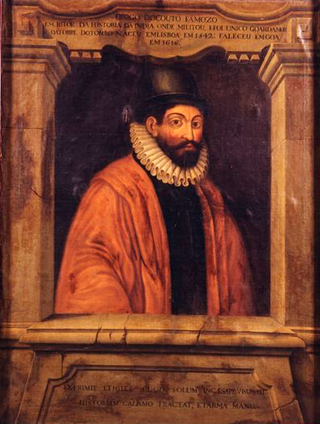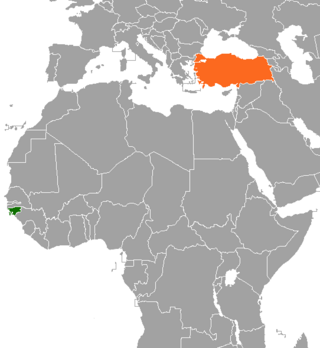Related Research Articles

Lídia Jorge is a prominent Portuguese novelist and author whose work is representative of a recent style of Portuguese writing, the so-called "Post Revolution Generation".

António Botto was a Portuguese aesthete and lyricist poet.

Olivais is a freguesia and typical quarter of Lisbon, the capital city of Portugal. Located in eastern Lisbon, Olivais is west of Parque das Nações, north of Marvila and Alvalade, and east of Lumiar and Santa Clara. The population in 2021 was 32,179.
Aguinaldo Fonseca was a Cape Verdean poet.
Afro-Portuguese(Afro portugueses or Lusoafricanos), African-Portuguese(Portugueses com ascendência africana), or Black Portuguese are Portuguese people with total or partial ancestry from any of the Sub-Saharan ethnic groups of Africa.

Tonicha is a Portuguese pop-folk singer. She represented Portugal in the Eurovision Song Contest 1971, with the song "Menina do alto da serra" ; she finished ninth. She also represented her country in the OTI Festival 1972 in which she had better luck and finished sixth.

Luis Carlos Verzoni Nejar, better known as Carlos Nejar, is a Brazilian poet, author, translator and critic, and a member of the Academia Brasileira de Letras. One of the most important poets of its generation, Nejar, also called "o poeta do pampa brasileiro", is distinguished for his use of an extensive vocabulary, alliteration, and pandeism. His first book, Sélesis, was published in 1960.
Adrino Aragão, , is a Brazilian short-story writer. In the 1970's And 1980's, he was a prominent Desed magazine (Brasília) and BIP – Boletim de Informação ao Pessoal, do Banco do Brasil S.A. reporter. BIP had a circulation of over 100.000 every week. Adrino Aragão wrote several reviews of new Brazilian books. After his retirement, he wrote essays on Comparative Literature and Literary Theory for Jornal do Brasil/Rio de Janeiro and academicals publications.

Diogo do Couto was a Portuguese historian.
Jorge Ferreira Chaves was a Portuguese architect.

António Correia de Oliveira (1879–1960) was a Portuguese poet. According to the Nomination Database for the Nobel Prize in Literature he was nominated 15 times without being awarded the Nobel Prize in Literature.

Valter hugo mãe is the artistic name of the Portuguese writer Valter Hugo Lemos. He is also an editor, singer and plastic artist. Valter hugo mãe received the José Saramago Prize in Literature in 2007 for his novel o remorso de baltazar serapião.
Maria Odete da Costa Semedo is a writer and educator from Guinea-Bissau. She works in both in Portuguese and Guinea Creole.
Maria Celestina Fernandes is an Angolan children's author. She has also written poetry and short stories, and had earlier careers as a social worker and lawyer. She has won several awards including Prémio Literário Jardim do Livro Infantil, Prémio Caxinde do Conto Infantil, and Prémio Excelência Literária.

Hirondina Joshua, is a Mozambican poet, prose writer and jurist. She is a member of the Mozambican Writers Association. The book Córtex was translated into Spanish and published in Mexico; In Brazil, her book Os Ângulos da Casa was adapted into a modern dance piece. She participated in the Edinburgh International Book Festival, the largest public celebration of the written word in the world.

Angelina Vidal was a Portuguese writer, editor noted for her support of the republic, women's rights and education for women.
Maria Lúcia Vassalo Namorado was a Portuguese writer, poet, journalist, teacher and social reformer, and director of the magazine Os nossos filhos.
Maria Lígia Valente da Fonseca Severino was a Portuguese and Angolan feminist journalist and writer. She used the pseudonym Lília da Fonseca in her writing. She was the first woman to join a candidate list in legislative elections for Portugal's Assembly of the Republic, in 1957.

Guinea-Bissau–Turkey relations are the foreign relations between Guinea-Bissau and Turkey. Turkey has an embassy in Bissau. Guinea Bissau has an embassy in Ankara.

Karyna Gomes is a Bissau-Guinean singer and journalist of Cape-Verdean descent. She was the co-founder of the peace movement Miguilan or Minjderis di Guiné No Lanta. In 2021, she led the coordination of the first journalism projects in various types of Creole languages, which was developed with the help of the Portuguese online journal Mensagem de Lisboa. As a journalist, she has worked with organizations such as the Associated Press and RTP. She has released two musical albums since the start of her music career in the late 1990s.
References
- 1 2 3 "Gisela Casimiro". Buala (in Portuguese). Retrieved 15 February 2024.
- ↑ Cardoso, Paola. "A sua vida ainda não deu em livro? Se passar por Gisela Casimiro, talvez dê". Afrolink (in Portuguese). Retrieved 15 February 2024.
- 1 2 "Gisela Casimiro – Os Filhos da Madrugada". Anabela Mota Ribeiro (in Portuguese). Retrieved 15 February 2024.
- 1 2 "Clube dos Poetas Vivos". Teatro Nacional D. Maria II (in Portuguese). 2 November 2021. Retrieved 15 February 2024.
- ↑ Pimenta, Samuel F. (15 February 2021). "Breve Poética: Gisela Casimiro". Revista Caliban (in Portuguese). Retrieved 15 February 2024.
- ↑ "Equipa". União Negra das Artes (in Portuguese). Retrieved 15 February 2024.
- ↑ "Nasceu a União Negra das Artes, para defender os interesses "da negritude no sector cultural"". Publico (in Portuguese). 3 August 2021. Retrieved 15 February 2024.
- ↑ "Abril em Lisboa. 48 mulheres, escritoras, poetas e cantautoras, pintam o chão de Lisboa". Comunidade Cultura e Arte (in Portuguese). 28 March 2022. Retrieved 15 February 2024.
- ↑ "Gisela Casimiro". Bantumen (in Portuguese). 2023. Retrieved 15 February 2024.
- ↑ "Lançamento IRMÃ MARGINAL — SISTER OUTSIDER, de Audre Lorde". Bantumen (in Portuguese). 9 November 2023. Retrieved 15 February 2024.
- ↑ "Gisela Casimiro". Wook (in Portuguese). Retrieved 15 February 2024.
- ↑ "Cláudia Semedo e Gisela Casimiro levam "Casa com Árvores Dentro" ao palco". Bantumen (in Portuguese). 21 October 2022. Retrieved 15 February 2024.
- ↑ "Livro "Rio das Pérolas" será apresentado amanhã em Macau". Plataforma (in Portuguese). 23 June 2020. Retrieved 15 February 2024.